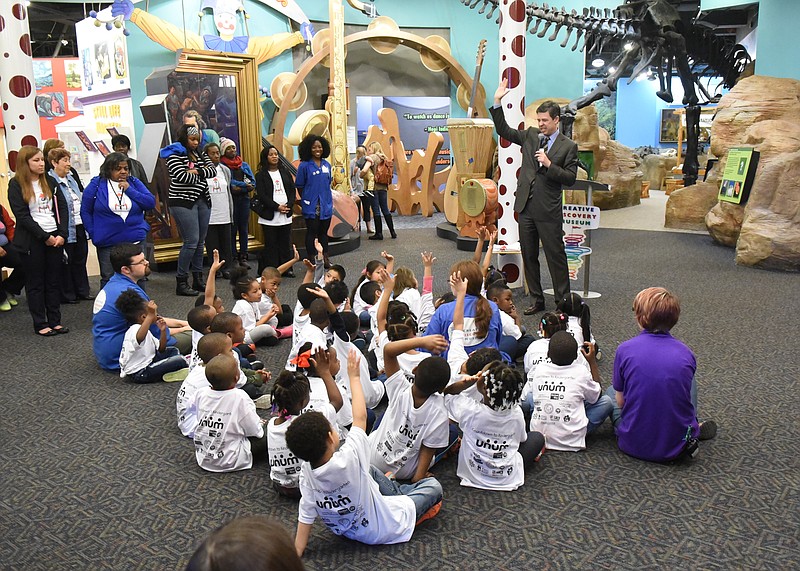Read more
Tennessee Pre-K study raises new questions about long-term gains
A five-year, $6 million study of the effects of Tennessee's Voluntary Pre-K Program reveals that quality, practices and curriculum in classrooms vary widely from site to site.
Before the state pays a dime to expand the program, which already serves 18,000 children in 935 classrooms in all 95 counties, it should make sure that quality and practices and, to a point, curriculum are uniform.
"Some of the VPK (Voluntary Pre-K) classrooms produced notably stronger outcomes for children," the study's co-principal investigator Mark Lipsey told a Vanderbilt research news site after the report was released last week.
Since all of the children in the study came from economically disadvantaged homes, it is crucial to model the best practices in the classrooms that had the strongest outcomes in programs across the state.
Otherwise, the state is not getting its money's worth from the program that costs $85 million-plus annually.
The TN-VPK Effectiveness Study suggested as much in its finding that, by the end of second grade and continuing in the third, children who attended a state pre-K program did not perform as well on many achievement measures as comparable children who did not attend the state program.
"We're pretty stunned looking at these data and have a lot of questions about what might be going on in the later grades that doesn't seem to be maintaining, if not accelerating, the positive gains the VPK attendees made in pre-K," Lipsey said.
The study, after all, showed that students who attended a pre-K were better prepared for kindergarten (i.e., scored higher on literacy tests, were better behaved and had a better attitude about school) than those who didn't - a feather in the cap for pre-K education - but that by the end of kindergarten there was no significant differences between the two groups.
Lipsey and co-principal investigator Dale Farran suggested the decline for the pre-K attendees was tied either to the variance in pre-K classrooms across the state or to the fact pre-K "graduates" often enroll at low-performing elementary schools. Such schools, they said, experience high student mobility, difficulty in recruiting and retaining high-performing teachers and insufficient resources to raise the level of students who did benefit from a pre-K program.
They conclude that improving the quality and consistency of the classroom programs across the state and better integrating the pre-K programs into the kindergarten-through-third-grade instructional sequence to improve continuity will help.
But they hit at the heart of the matter when they said that high quality pre-K can be a vital part of the educational equation for children in poverty "but is unlikely to be sufficient by itself at even the highest quality levels."
In other words, like many researchers of K-12 education have concluded, all the money in the world thrown into education can't change some things. Money can't buy a father in the home. It can't provide a well-paying job for a parent. It can't force a guardian to read to a child. It can't force someone in the home to take an interest in a child's education.
"Pre-K is a good start," Farran said, "but without a more coherent vision and consistent implementation of that vision, we cannot realistically expect dramatic effects. Too much has been promised from one year of preschool intervention without the attention needed to the quality of experiences children have and what happens to them in K-12."
For many working families, public or private pre-K is not a choice. Nearly three-fourths of U.S. 4-year-olds are already in such a program, according to the National Institute for Early Education Research. And for many children, pre-K is a better option than being at home with a parent or guardian who isn't interested in the child's development. It also can be a great outlet for socialization and should be a place for creative learning and play. However, what pre-K is available must have quality and practice standards.
The state, after all, doesn't need to follow in the footsteps of the $8 billion Head Start program, which the U.S. Department of Health and Human Services revealed in late 2012 had little or no impact on the cognitive, social-emotional, health or parenting skills of participants.
Going forward, the challenge for Gov. Bill Haslam and Commissioner of Education Candice McQueen, as well as lawmakers who will scrutinize the program's effectiveness, is to ensure pre-k standards are uniform across the state but not to move to universal pre-k, as President Obama has suggested. Such decisions about the lives of 4-year-olds belong in the hands of parents.
